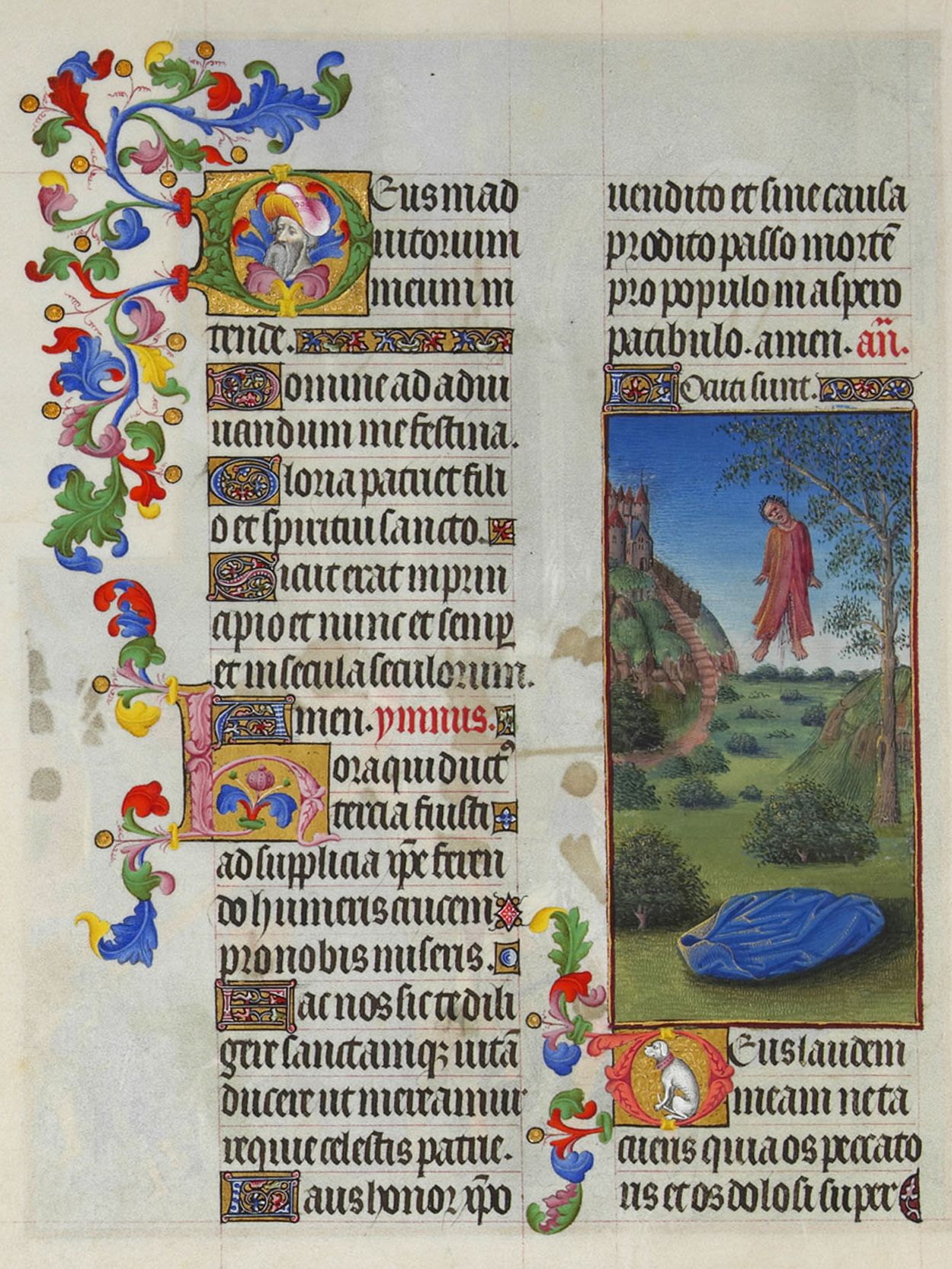
Limbourg Brothers
The Death of Judas
1412-1416
Folio 147v, Très Riches Heures du Duc de Berry
Musée Condé, Chantilly, France
This miniature appears in the "Hours of the Passion" section of the Très Riches Heures. After following Christ's Passion through to the Crucifixion, the text comes to Psalm 108(109), which Christians interpreted as the words of Christ regarding his betrayal by Judas. Directly beneath the image of Judas hanging from a tree, the psalm begins, Deus laudem meam ne tacueris quia os peccatoris et os dolosi super me apertum est, "O God, be not thou silent in my praise: for the mouth of the wicked and the mouth of the deceitful man is opened against me." For St. Jerome the first clause in this verse meant "Judas has betrayed me, the Jews have persecuted me and thought to destroy me; but you, O God, will not be silent," and the second clause leads Jerome to write, "Let us see how the mouth of the traitor Judas is open against the Lord: he comes in order to betray him saying, 'Rabbi.'"1
The psalm goes on to predict dire consequences for this "deceitful man," concentrating mostly on how he and his family will be rejected. Verse 12 prays, "May there be none to help him: nor none to pity his fatherless offspring." Thus in the miniature Judas hangs alone in a desolate landscape, with "none to help him, nor none to pity." The blue garment at his feet reflects verse 18, "And he loved cursing.… And he put on cursing like a garment.
It is possible that even the dog in the small initial D relates to Judas. In medieval bestiaries the dog has one positive and two negative characteristics. The positive characteristic is that it can cure its wounds by licking them, which corresponds to the man who cures his ills by confessing them. The first negative characteristic is that it eats its own vomit, like the man who returns to his sin after he has confessed. The second negative characteristic, perhaps the one most relevant to Judas, is that if crossing a river with meat in its mouth a dog will see its reflection and lunge for the reflection of the meat, thus losing the actual meat. This is said to signify "foolish men who abandon what is rightfully theirs because ambition makes them pursue the unknown."2
Read more about images of Judas.
Source: this page at Wikimedia Commons.